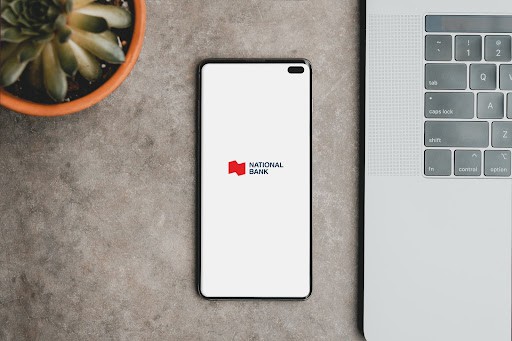
The rise of the Gig economy
The gig economy has been around for a while—the labor market characterized by mostly fixed-term contracts and freelance jobs. However, since the Covid pandemic, we have seen a surge in the prevalence of such work arrangements, independent contractor jobs inclusive. More and more companies now see the need to build and manage an outsourced team.
There has been a rapid change in the trajectory of work as we know it. And with good reason too. On the one hand, workers enjoy the flexibility it affords. On the other hand, companies and agencies can outsource services to boost productivity.
Who is an independent contractor?
An Independent contractor is a person or entity that offers specified services to a company, not as a legal employee but as a hired contractor.
Independent contractors are not entitled to certain benefits—like insurance and social security— available to other regular employees. They are liable and responsible for tax payment. Unlike full-time employees, independent contractors exercise a high level of control over their work, done with little or no supervision. In this case, understanding how to set up a contract worker up for success is the key to ensuring maximum productivity with minimal supervision.
What is an independent contractor agreement?
An independent contractor agreement is a verbal or written agreement that establishes the status of an independent contractor and details the agreed terms of the working relationship with your agency. Hiring an independent contractor without an agreement to that effect can expose your agency to some legal penalties if there is a dispute regarding misclassification.
Two sides of the same coin
When it comes to independent contractors and their agreements, there are two mistakes your agency should avoid—failing to draft one and opting for free independent contractor agreement templates, most of which are available online. While these two options seem like an easier route to take, they have certain downsides that can cost you. Let’s take a look at each one.
Failing to draft an independent contractor agreement
No doubt, you can have independent contractors on your payroll without a written contract. However, when you fail to draft an independent contractor agreement, you open your doors to several potential issues.
Without a contract, your relationship with your independent contractor lacks governing principles. What happens when disputes arise? It is simple. You’ll have nothing to fall back on and no agreement to cite.
The essence of Independent contractor agreements is to protect both your company and the independent contractor. For starters, it serves as a clear establishment of the status of the independent contractor. It also sets out clear expectations, responsibilities, and roles.

Free independent contractor agreement templates
There are a ton of free templates that you can access online— agreements, terms and conditions, letters, name it.
While these templates can be helpful in some cases, they can be tricky and somewhat problematic when dealing with independent contractor agreements.
An independent contractor agreement ought to be custom-made to capture the specifics of the contract between your agency and the independent contractor you are hiring. The free templates you’ll find online are more generalized and not drafted with your agency in mind.
Another downside to these free templates is that they may not suit international contractors. Every country has unique local labor and tax laws. A free template may adhere to the stipulations of one country but be in breach of the laws of another country.
The way to go
We have already discussed the routes you should not take with independent contractor agreements. Now let’s talk about the right way to go about it. First things first, you have to put your independent contractor agreement into writing. Written agreements are more reliable compared to oral agreements.
What should an independent contractor agreement contain?
1. General information about the contractor and client
As is typical with every agreement, an independent contractor agreement should outline the parties involved. In this case, that will be your agency and the independent contractor. This section contains the basic details of both parties to the agreement.
2. Benefits and liability exclusion
It is common to find disputes arising about the benefits and liabilities of an independent contractor. More so when the status of the contractor is not specified. There is a distinction between an employee of your agency and a hired independent contractor. Misclassifications can be avoided by spelling out the status of the independent contractor in the agreement.
Create a section in the agreement specifically to establish the independent contractor status. State expressly that the contractor is not entitled to the benefits of a full-time employee. The agreement should also state that the independent contractor is responsible for tax payments.
3. Services and scope of work

This section of the agreement outlines the agreed services and the specific scope of the independent contractor’s work. This is where you detail the tasks and deliverables the contractor is expected to oversee.
The essence of this clause is to ensure that both parties are clear as to the roles, responsibilities, and expectations for the independent contractor’s work.
If the services and scope of work are extensive with a chance of additional services required in the future, there should be provisions to cover for them. The easy way to do this is to state that the agreement extends to all future statements of work.
It also helps to specify definite deadlines for project deliverables, if any. You can also go a step further to outline the metrics you have set in place to measure the performance of your independent contractor.
4. Equipment and facilities
It is common to find independent contractors working remotely. However, they are not limited to remote work. You can still bring your independent contractors into your office facilities or spaces.
In both cases, there must be an agreement about the availability and usage of facilities, spaces, and pieces of equipment.
Where you want your independent contractor working remotely, clearly specify in the agreement, letting him know he is not entitled to office space and work equipment. If, on the other hand, there is a provision for them to work onsite, be sure to expressly outline the terms and conditions for the use of the available facilities and equipment.
5. Permission to delegate work to subcontractors
It is not out of place for an independent contractor hired by a company to hire subcontractors to help with the project. Whether or not this style of delegation is applicable with your independent contractor will depend on the stipulations of your agreement.
This section of the agreement should state outrightly the rights of an independent contractor to delegate projects assigned to him by your agency to subcontractors of his choice. Another part that you should include in this clause is the responsibility of the independent contractor to pay any such hired subcontractors. You don’t want a situation where your agency is held liable for nonpayment of subcontractor fees.
There should also be a clause that brings such subcontractors under the umbrella of compliance with the independent contractor agreement. This way, the subcontractors can be held liable for any breach of the provisions therein.
6. Compensation and terms of payment

This section of the independent contractor agreement defines the terms of compensation for the services rendered. Indicate in clear terms how much your agency will pay the contractor.
You also want to define the payment frequency, among other terms—like whether payments will be at an hourly or flat rate, payment methods, et cetera.
7. Severability clause
In the event that a certain provision of the agreement becomes invalid, a severability clause if included validates the other provisions of the agreement.
8. Effective date of the agreement
An independent contractor agreement should include a clause stating the date the agreement becomes effective. This date marks the beginning of the working relationship between your agency and the independent contractor.
9. Termination of the agreement
Usually, the termination of the agreement will depend on the duration agreed on by both parties. If you are hiring an independent contractor for a long-term project, the agreement should stipulate the conditions for termination. It should also specify terms for such termination, like the number of days’ notice.
On the other hand, if the agreement is for a short-term project, its termination will usually be after such a project. In this case, you can include an expected due date.
Getting it right with independent contractor agreements
Independent contractors can be a big plus to your agency. However, hiring one is tricky and can be problematic if not handled correctly. With GoWP, we handle all the paperwork and legal intricacies for you.






